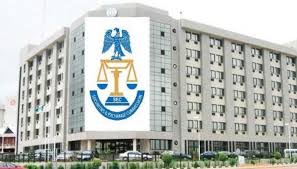Socio-Economic Rights and Accountability Project (SERAP) has urged the World Bank to Investigate N121.67trn Nigeria’s National Debt, saying it is high time the Inspection Panel of the bank also investigated the alleged corruption in using loans and other funding obtained by the Federal Government and Nigeria’s 36 state governors.
SERAP is also seeking a review of all World Bank-funded projects implemented by successive governments since 1999.
The civil society organisation further urged the Inspection Panel to determine the extent to which the Bank’s Management has followed or is following the World Bank’ ‘s operational policies and procedures applicable to the design, appraisal and implementation of all Bank-financed projects in Nigeria.
SERAP made the demand in the June 22, 2024 letter signed by SERAP deputy director Kolawole Oluwadare.
It also urged the Panel to determine the effect of any failure by the Bank’s Management to effectively implement its operational policies and procedures in several state-funded projects on the social and economic rights and well-being of millions of socially and economically vulnerable Nigerians.
The organisation maintained that the World Bank has, over the years, reportedly approved 197 projects for Nigeria, totalling over $36 billion in loans and other funding facilities [that is, $36,360,415,968.81], with little or no impact on Nigerians living in poverty.
SERAP said Nigerians are rarely informed, meaningfully, and effectively consulted about several loans, facilities, and Bank-funded projects. Nigerians continue to be denied the benefits of loans and facilities and access to essential public goods and services.
They pointed out that despite several loans and other funding facilities provided by the World Bank over many years, millions of socially and economically vulnerable Nigerians in several states and communities continue to lack access to regular electricity supply and have been denied the benefit of renewable energy solutions.
The complaint, addressed to the Chair of the Panel, read in part: “A recent report by the National Bureau of Statistics (NBS) revealed that over 133 million Nigerians are living in poverty, the majority of them women and children. We would, therefore, be grateful if the recommended measures were taken to hold the World Bank accountable.
“The apparent failure by Bank Management to diligently follow the World Bank’s operational policies and procedures in Bank-funded projects have resulted in the alleged mismanagement of the loans and facilities and exposed millions of Nigerians to extreme poverty.
“We are concerned about the negative impact of the lack of transparency and accountability in the spending of loans and facilities obtained by the Federal Government and Nigeria’s 36 state governors on the social and economic well-being of millions of Nigerians and the enjoyment of their human rights.
“We are concerned that several of Nigeria’s 36 states and the FCT reportedly owe civil servants’ salaries and pensions. Several states are borrowing to pay salaries. Millions of Nigerians in these states and the FCT continue to be denied access to essential public goods and services.
“The federal government and several states are also reportedly spending public funds, which may include the loans and facilities obtained from the World Bank, to fund unnecessary travels, to buy exotic and bulletproof cars, and to fund the lavish lifestyles of politicians.
“The N121.67 trillion ($91.46 billion) debt represents external and domestic loans obtained by the Federal Government, the 36 state governments and the Federal Capital Territory (FCT).
“The World Bank reportedly has a portfolio of about $8.5 billion spread across the country. The Bank has also approved several loans and other funding facilities to the country’s 36 states, including the recent $750 million credit line meant for the states to carry out reforms to attract investment and create jobs.’’
According to SERAP, the Bank recently approved a $2.25 billion loan for Nigeria ‘to shore up revenue and support economic reforms and address the cost-of-living crisis in the country.
“In September 2002, the Bank approved $129.00 million for a project titled ‘Universal Basic Education Project: P071494 ‘to increase the capacity of states and local governments to manage and implement the UBE program effectively and efficiently.
“In May 2007, the Bank approved $180.00 million for a project titled ‘Nigeria Federal Science & Technical Education at Post-Basic Levels (STEPB): P074132’, ‘to produce more and better-qualified science and technology (S&T) graduates.
‘’In May 2000, the Bank approved $55.00 million for a project titled ‘Second Primary Education Project: P066571’, ‘to support the implementation of Universal Basic Education.
“In December 2000, the Bank approved $86.75 million for a project titled ‘Community-Based Poverty Reduction Project: P069086’, to”improve access of the poor to social and economic infrastructure and increase the availability and management of development resources at the community level.
“In March 2011, the Bank approved $160.00 million for a project titled ‘Nigeria – Growth & Employment: P069086’, ‘to increase growth and employment in Nigeria.
“In July 2020, the World Bank approved $500.00 million for a project titled ‘Adolescent Girls Initiative for Learning and Empowerment: P170664 ‘to improve secondary education opportunities among girls in targeted areas in participating states, ‘’ SERAP said.

























